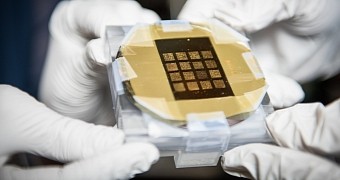It seems that scientists at the University of Alabama designed and made a material that changes the speed of light in a new, and more effective way than previous methods did.
The research was done by two professors and three grad students in the UA College of Engineering who managed to create the prototype for the next-generation optical networks and sensors that obviously transmit data via variances in the speed of light.
Thus, by developing "slow light," researchers could develop optical buffers and delay lines that offer greater flexibility to only ultrafast optical communication networks that we have today. Although this sort of research helps network engineers regulate the speed of photons inside the optical wires, it may also directly limit the speed of data flowing through those wires, which may have some political and social ramifications.
Man-made "metamaterials" can hold and "slow down" light
Dr. Seongsin Margaret Kim, associate professor of electrical and computer engineering and principal investigator on the research, considers that "In addition, enhanced interaction of photons with matter by lowering the speed of light gives rise to reduced power consumption in nonlinear optical switching devices and ultra-accurate sensing performance of optical sensors," as cited by phys.org.
Apparently, the scientists used metamaterials, which are a new class of materials gaining properties they don't possess naturally, and when grouped together in special structures, they can interact with light and even stop it. These metamaterials like silicon don't use energy and are much less complex to implement. These metamaterials are best when used as filters, modulators, invisible cloaking devices, superlenses and perfect absorbers.
However, leaving aside the curious innocence of scientists, the applications of such discoveries are pretty simple: regulating data flow in the most efficient way possible. It's all about money and power in the end.

 14 DAY TRIAL //
14 DAY TRIAL //